Grief and Hope
Working your way through Loss
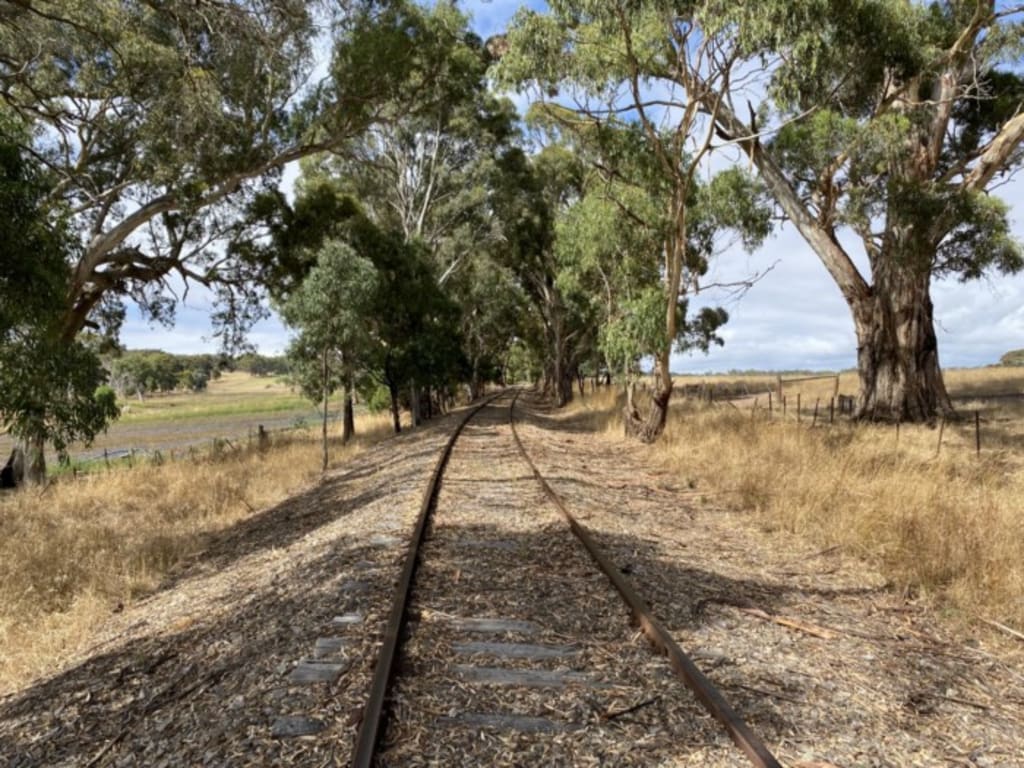
The phone call from my sister was unexpected. It was Friday morning, the 4th of February this year, and I was at work, calling customers, following up on their enquiries. I work in Personal Banking for one of Australia’s major banks.
My sister lives in Melbourne (Australia), and my family and I live in Adelaide. For the last two years, since the passing away of my mother, she has been the main support of my father, who had deteriorated mentally and physically. Being alone and isolated in the family home during Melbourne’s lengthy Covid-19 lockdowns had accelerated his decline. He had been diagnosed with Dementia, and this was progressing rapidly.
Last year, the day before his 90th birthday, my sister had admitted him to a aged care facility. She and a lady from his church visited him regularly.
My sister told me that my father was now at “end-of-life”, a term that I was familiar with from when my mother passed away early in 2020. She, like my father, had deteriorated rapidly towards the end of her life. A call to my father’s doctor confirmed this. She informed me that he was now unconscious, and that, in her experience, her patients at this stage did not endure for more than 3 days.
The Trip
With this in mind, I called my manager to let her know, and then phoned my wife. We prepared for the 10-hour trip to Melbourne the next day.
The focus was now on my father, Eric Josef Kleimann, and if we would make it to his bedside before he passed away. On the way, we talked about his life, and the great, supportive, loving father that he was.
His descent was not unexpected, due to his steady decline over the last two years. We had been isolated from him in his nursing home, too, as he was not technology-savvy and was also very deaf — it was not easy speaking to him on the phone, and his hearing aids provided little assistance. The best method was face-to-face, and, as told to us by his visitors, his dementia meant that recognition by him was a slow process during visits.
My former neighbour said that we could stay with her, in her home in an outer Melbourne suburb, for as long as it took.
We arrived at about 5:20pm, planning to visit my father the next morning. As with many events in life, things did not go to plan. The Aged Care home phoned at 7:00pm, advising that my father had passed away.
We then made the 45 minute trip to his Nursing Home, to see him for the last time, and to say goodbye. This was a very emotional time.
The Grief
Healthline lists a number of difficulties experienced by those who have experienced the loss of a parent. These include guilt, perhaps for not contacting them frequently or not being present for their death, hopelessness or despair and relief that they’re no longer in pain.
As Dad had started succumbing to dementia as long as five years ago, his deterioration and passing away were not unexpected. After my mother passed away, I sought the advice of friends who were counsellors and had a background in psychology, to find out what the impact on my father might be. My mother was the dominant one in their marriage, running the home and making friends, while my father was the “breadwinner”. My father followed her. Our friends advised that, in a case like my parents’, the surviving partner does not live for long, with loss and grief having a large impact. In Dad’s case, the loneliness he experienced as a result of Covid increased this. I remember him telling us in 2020 that he clearly heard Mum in the house after her passing, telling him that she was going shopping with friends, but he never saw her.
Healthline also advises that “some people work through grief in a short time and move forward with the remnants of their sadness safely tucked away. Others need more time and support, no matter how expected the death was”.
In my case, so far I have worked through my grief, although I am not fully over it.
When my mother passed away, I was there when she drew her last breath, with my father. This gave me a closure that I did not have with Dad.
Dad’s Funeral and its Impact
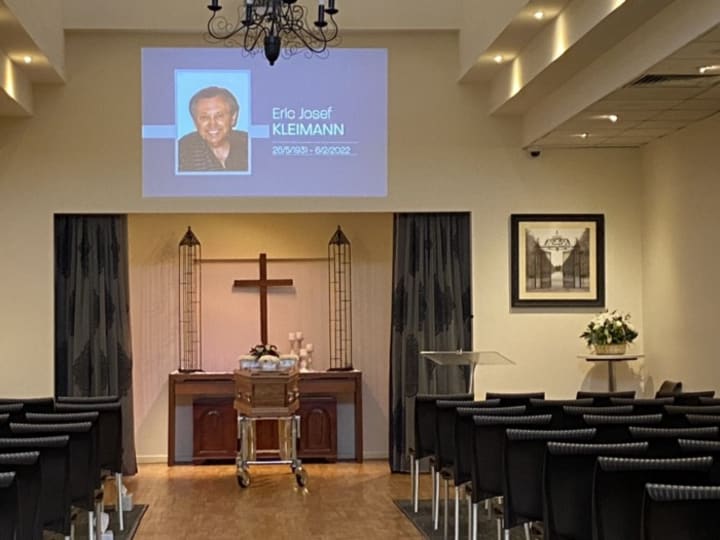
When Mum passed away, my sister arranged her funeral, and I wrote and delivered her eulogy, which I found a healing process.
In this case, she offered the funeral arrangement to me, and I accepted it. It was a large job for a “newbie”, but the funeral home was a huge help and support. Like in Mum’s case, writing Dad’s eulogy gave me a large insight into his life, including parts I had little knowledge of, and helped in healing me during my grief.
Healthline advises, in accepting the passing away of a loved one, to have the approach of “I am so fortunate to have had so many wonderful years with him, and he will always be in my memories.”
For a man who had been largely overshadowed by my strong-willed mother during much of his life, my father had an amazing life. He was one of three children, having a younger brother and a rebellious sister who was 17 years younger than he was.
I was fortunate that we were staying with my former neighbour, who had known my parents since 1964 — she was an encyclopaedia of knowledge about him, including obscure information about family outings, and the day they moved in next to her (I was born a year later).
His brother was also a fount of knowledge, providing information including the dates of birth of his parents (needed for Dad’s Death Certificate application), the name of his birthplace (Beilitz, Poland) and the name of the migrant ship that his family travelled to Australia on (below).
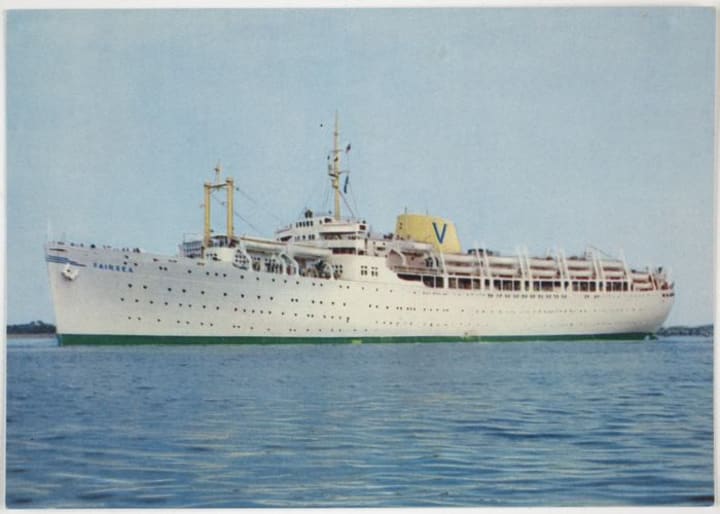
I was a bit concerned about his information, as, after each piece of knowledge, he said “that will do”.
The part of Dad’s life that I remember the most, and was a big theme of both my eulogy and his funeral, was his long career with the Victorian Railways. He was indeed a railway man.
Putting this part of his life to paper, and sharing it at his funeral, was very healing — I could almost feel his presence there, listening and smiling.
The Railway Man
Dad started his railway career during the 1950s, driving large, black steam engines on Victorian country rail lines, before moving onto the Melbourne suburban electric trains. He often drove the Tait (“Red Rattler") trains (below), which were very popular during this time.
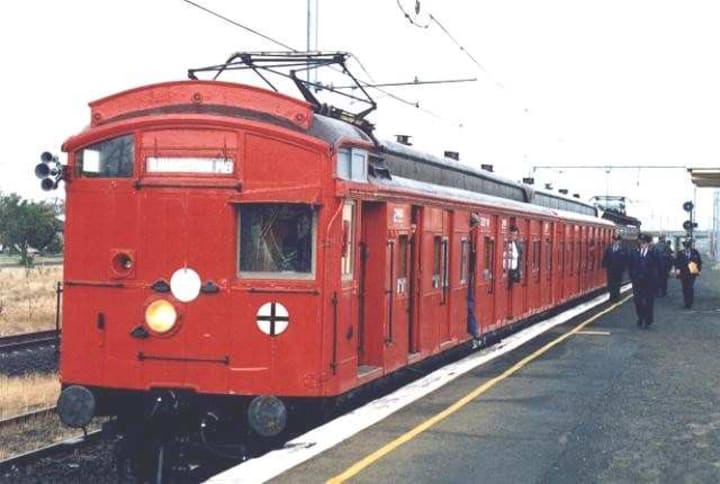
My earliest memories were of waiting on a platform at Box Hill Station, for a Flinders Street Station — bound train with Dad, and the Tait pulling up, rocking gently from side to side, its ancient electric engines rumbling.
During stifling Melbourne summer days, its very climate-friendly air conditioning system clicked into life: simply open a window or a sliding door and whoosh! Air conditioning! Leaving the door open also gave one panoramic views of Swan Street, Richmond and its traffic as one passed over.
When he was on holidays, he would reach into his wallet and proudly pull out one of Victorian Railways’ biggest fringe benefits to its’ employees — the First Class Pass. This amazing document entitled the bearer and their family to free first-class travel all over Victoria.
It certainly got mileage, with first-class family trips to destinations such a Ballarat, Bendigo and Warrnambool. My sister and I once travelled to Warrnambool (3 and a half hours) and return, with a 1 and a quarter hour lunch stop in between, first class, paying nothing, because we could.
Looking after yourself during Grief
In my case, my employer gave me two weeks off after my father passed away, and I was able to rest after we returned home to Adelaide after his funeral.
I ensured that I switched off, exercising regularly (I have been for walks) and had daily naps in the afternoons.
Healthline advises: “It might seem difficult, even inconsiderate, to dedicate time to self-care, but prioritizing your health becomes even more important as you recover from your loss”.
Please let me know if you have experienced grief, and how you approached it.
Source: The Grief of Losing a Parent Is Complex — Here’s How to Start Navigating It - https://www.healthline.com/health/losing-a-parent#fully-experience-it

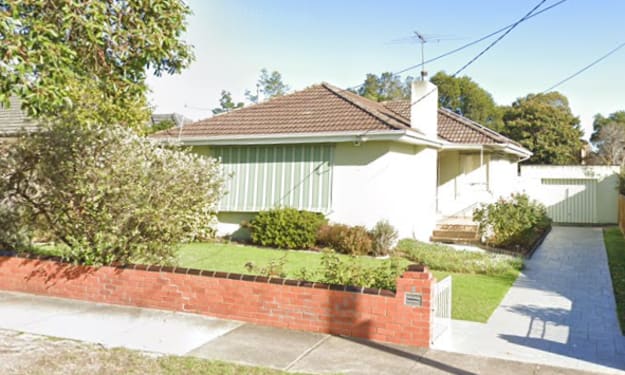



Comments
There are no comments for this story
Be the first to respond and start the conversation.